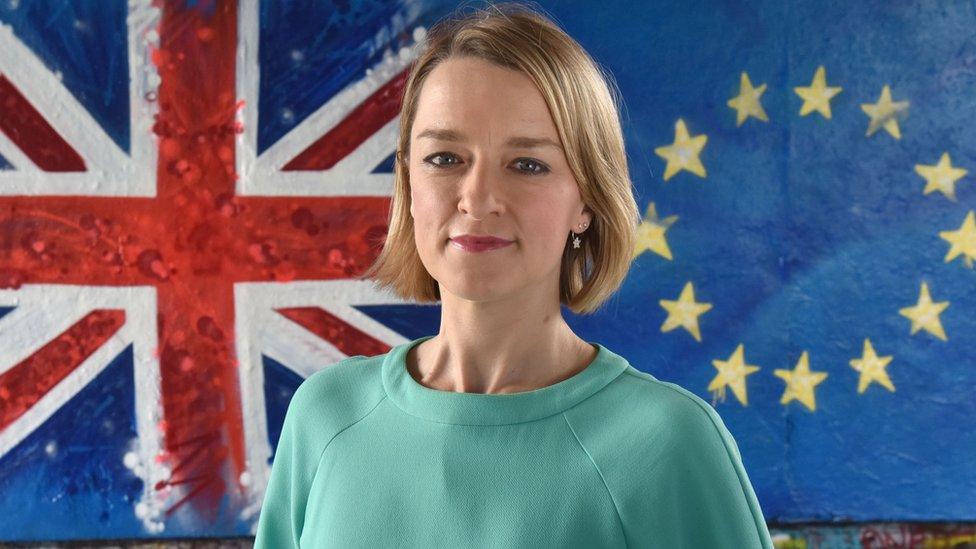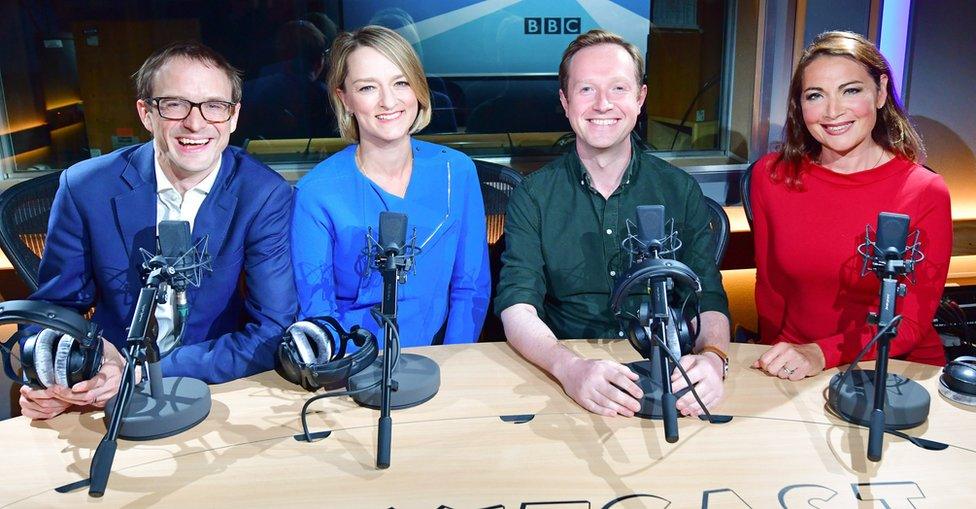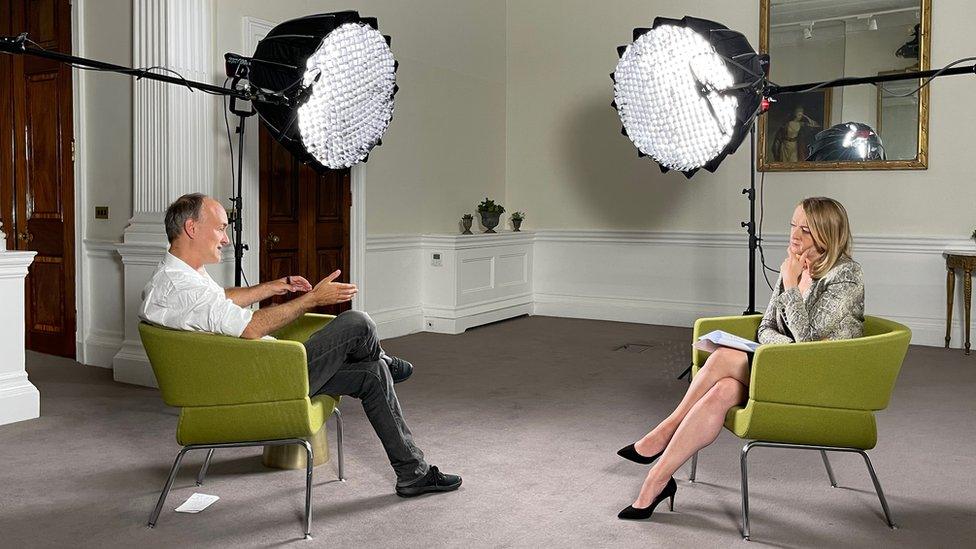Laura Kuenssberg to step down as BBC's political editor
- Published

Laura Kuenssberg is to step down as the BBC's political editor after seven years in the job, the corporation has confirmed.
Kuenssberg took over from Nick Robinson in 2015, becoming the first woman to hold the position.
She said it had been "incredible to occupy the chair during a time of such huge change" in British politics.
The BBC said Kuenssberg would remain in the post until Easter and then take on a range of other roles.
Allow X content?
This article contains content provided by X. We ask for your permission before anything is loaded, as they may be using cookies and other technologies. You may want to read X’s cookie policy, external and privacy policy, external before accepting. To view this content choose ‘accept and continue’.
The journalist's time as political editor covered a tumultuous period in British politics, which included Brexit, two UK general elections and the Covid-19 pandemic.
"I've been so lucky to do the best daily reporting job in the business, with the best colleagues anyone could wish for," said Kuenssberg in a statement.
"It's been incredible to occupy the chair during a time of such huge change and to try to make sense of it for our viewers, listeners and readers online."
She added: "I'll miss the daily drama, and our wonderful team in Westminster, immensely. But after nearly seven years and what feels like decades' worth of headlines, it's time for the next move."
The broadcaster said she would take on "a range of news and current affairs projects across TV, radio and online", adding that further details will be announced next year.

Kuenssberg became a presenter on Brexitcast, now known as Newscast, when it launched in 2017
Prior to becoming the BBC's politics editor, the 45-year-old served as the corporation's chief political correspondent.
She also previously held senior roles at ITV News and BBC Two's Newsnight.
In 2016, Kuenssberg was awarded Broadcaster of the Year by the Political Studies Association, recognising her work covering the June 2016 EU Referendum and subsequent follow-up stories.
She was also honoured as the Journalist of the Year at the British Journalism Awards the same year.
In 2017, she became a presenter of Brexitcast, now known as Newscast, alongside Chris Mason, Adam Fleming and Katya Adler.
BBC Director of News Fran Unsworth said: "Laura's a born journalist and she's done an amazing job as political editor. She's an energetic and determined story-getter, who gets straight to the heart of the issue and knows exactly the right questions to ask.
"Our political coverage would have been immeasurably poorer without Laura as political editor. We're lucky to have her."
BBC director-general Tim Davie said: "Laura has been an outstanding BBC political editor throughout the most turbulent political times in living memory. Her incisive commentary, tough questioning and astute insight have guided our audiences through the last seven years.
"She's a superb interviewer and engaging presenter, and I'm thrilled that we are keeping her on our screens and airwaves. I'm looking forward to her next chapter."

Kuenssberg interviewed Dominic Cummings earlier this year
Kuenssberg has conducted interviews with a string of high-profile political figures, including Prime Minister Boris Johnson and his former aide Dominic Cummings.
However, Kuenssberg's time in the role occasionally attracted controversy. In 2017, her News at Six report about Jeremy Corbyn's view on shoot-to-kill broke accuracy and impartiality rules, the BBC's governing body said.
But James Harding, then the director of BBC News, rejected the ruling and called Kuenssberg "an outstanding journalist and political editor with the utmost integrity and professionalism".
In 2019, the BBC defended her, external after she identified the father who confronted Boris Johnson during a visit to a hospital. The corporation backed its political editor again, external over complaints she had tweeted in defence of Dominic Cummings, after news broke he had driven from London to Durham during lockdown.
Kuenssberg has occasionally been booed covering party conferences. After being assigned a bodyguard during the Labour party conference, she responded by saying, external the abuse and threats she had faced were meant to try to silence her.
She is set to leave her current role around Easter 2022 and the BBC will look to appoint her successor in the coming months.

Follow us on Facebook, external, or on Twitter @BBCNewsEnts, external. If you have a story suggestion email entertainment.news@bbc.co.uk, external.
- Published20 October 2021
- Published15 October 2021
- Published7 October 2021